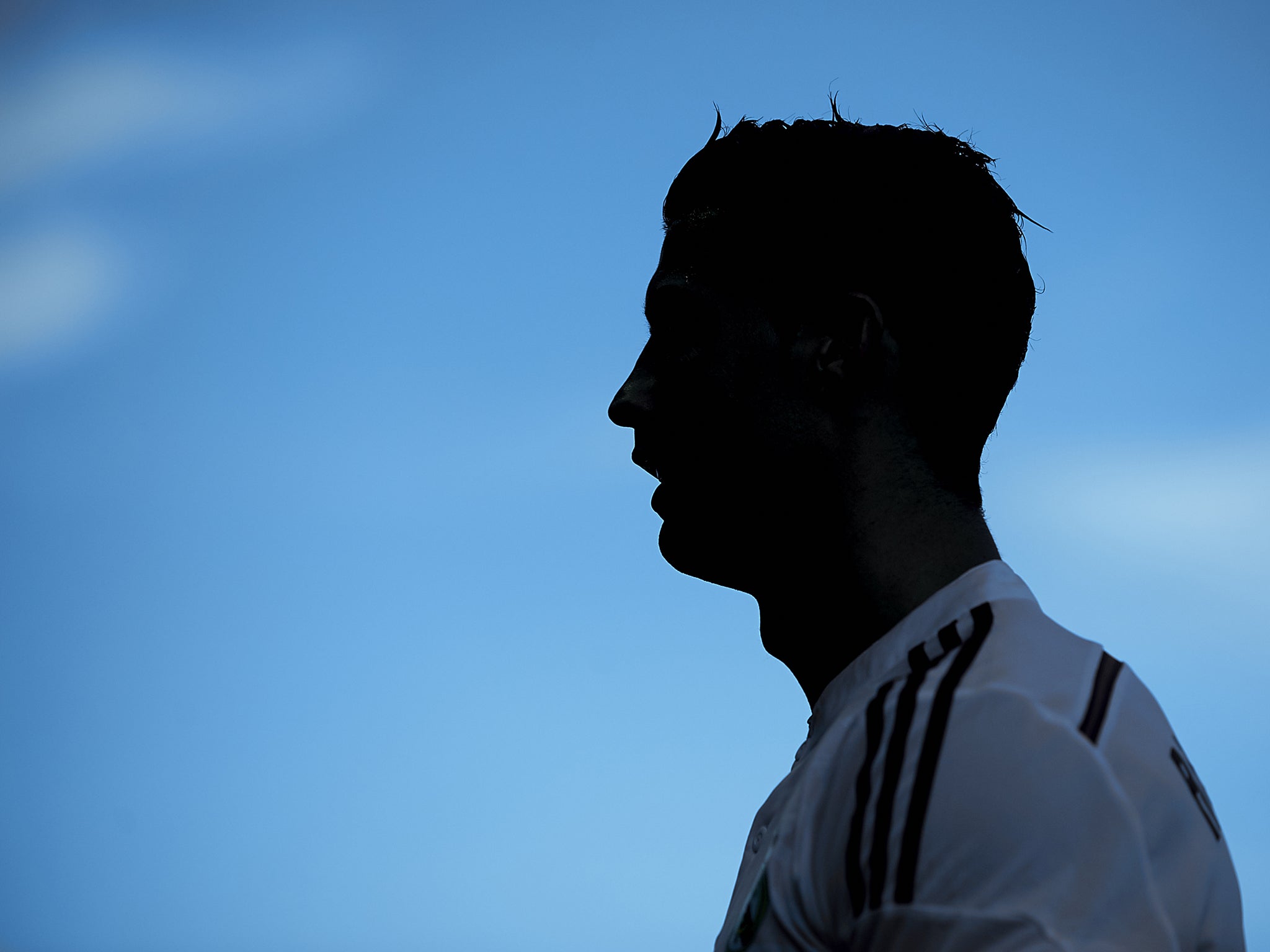Comment: Cristiano Ronaldo and the All Blacks are special
The Real Madrid striker and the New Zealand rugby team share the unshakeable expectation that they will win

The rules of association football were only 20 years old when German philosopher Friedrich Nietzsche outlined the heightened state of mind and body of his superman. Had he been writing today, his god-buster classic might have been entitled Thus Spoke Cristiano ‘Zarathustra’ Ronaldo.
Yes, he is back among us this week, not as a footballer but the Übermensch, a being whose athletic and mental powers are beyond our ken and absolute. Ronaldo has become more than a player, more than a team if you compare the number of shirts bearing his name flying out of the Bernabeu, one million-plus, twice that of his Real Madrid team-mates combined last season.
Everywhere the stats are compelling, projecting the idea that he could beat Liverpool on his own in the Champions League at Anfield on Wednesday. A brief summary of the season reveals a return of 19 goals from 12 games in all competitions, five more than the entire Liverpool team managed in its first 10 matches of the season.
His goals-per-game ratio is 1.58 compared to a Liverpool XI output of 1.40. A shooting accuracy of 73 per cent yields a 35 per cent conversation rate. Liverpool convert only 12 per cent of chances with a shooting accuracy of 48 per cent.
Ronaldo is the individual embodiment of Nietzsche’s ideal at work in a group setting. Los Blancos are an example of what can be achieved when the zeitgeist takes hold of the team. If you could bank the eulogies to Ronaldo and Madrid that will come out of Liverpool this week you would be a rich man. Brendan Rodgers won’t be playing rope-a-dope when he claims Ronaldo is the best player in the world.
The same scenario plays out in rugby union, where Madrid’s oval-ball counterparts, the All Blacks, crush the opponent in the head as much as on the pitch. With less than a minute remaining in the Bledisloe Cup match in Brisbane on Saturday, the men in black were six points in arrears. To win the game they would be required to breach the Australian defence and knock over the conversion.
An overwhelming sense of fatalism hung over the Suncorp Stadium. Hearts on each side of the Tasman Sea quickened, one nation in exhortation of victory, the other in anticipation of dread. Sure enough, Malakai Fekitoa crossed the Australian line to bring the All Blacks within a point of the Australian total, inviting Colin Slade to split the posts. The clock had ticked beyond the allotted 80 minutes when the ball floated over. Australia hoped for a reprieve but deep in their souls they knew, just as the All Blacks knew, just as we knew, that the win would come.
What powerful force was at work to produce this outcome? It might not always happen this way. The All Blacks lose episodically, but against expectation. And that is the point. Somehow, from somewhere, the greatest rugby union team on earth has cracked the unknowable code of supremacy so that they expect to win, and their opponents, despite protestations to the contrary, lose conviction when the All Black machine bears down on them in the heat of conflict.
And so it is with Ronaldo. When he is running at the opponents’ goal he expects to find the net, his team-mates share the belief and so do their opponents, hence the look of utter disbelief if the ball misses the target. In golf Tiger Woods held the same station. In tennis Rodger Federer, Rafa Nadal and Novak Djokovic display the same characteristics. When they face each other the aggregate sum of forces applied to achieve victory could burn a hole through to the earth’s core.
Sports psychologists are helpful in breaking down the dynamic, explaining what is going on when a team, or individual comes out on top more often than not. In an essay entitled “Training Your Brain To Win” Jim Afremow lists the mental hardware required to succeed.
Superman/team has a supreme, unwavering confidence in his/their ability, the capacity to keep a laser-like focus when surrounded by distractions, the ability to sustain motivation throughout a long season, the strength of will to conquer anxiety, frustration and discouragement and the power to bring intensity to the next level when needed.
While helpful in identifying the necessary attributes this does not unravel the mystery. We still don’t know how Ronaldo et al achieve this state of grace.
Nietzsche’s superman was created to reclaim from Christianity the power to determine our own outcomes, to take back from God authorship of events. He would have been disappointed therefore to see Ronaldo look to the skies in communion with a higher being when the goals go in. Nietzsche would have told Ronaldo that he was doing his own work, not God’s. Thus, moved entirely by his own agency, he achieves the highest state possible for the species, the will to power. In the simplest sense Ronaldo is an example of what can be achieved when we put our minds to it. He puts it down to God, Nietzsche sees it as the ultimate expression of freedom and fulfilment through our own means. Either way, Liverpool, you have been warned.
Join our commenting forum
Join thought-provoking conversations, follow other Independent readers and see their replies
Comments